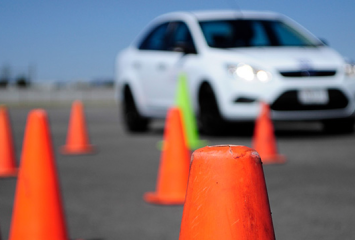

The Defensive Driver Training course is a comprehensive program designed to equip participants with the knowledge and skills necessary to become safe and responsible drivers. This course focuses on defensive driving techniques and strategies that can help prevent accidents and reduce the risk of injury on the road. Through a combination of theory and practical exercises, participants will gain a deep understanding of defensive driving principles and learn how to apply them in real-world driving situations. This course is suitable for both new and experienced drivers who are committed to enhancing their driving skills and becoming more aware and proactive on the road.
- Understand the importance of defensive driving and its role in preventing accidents and promoting road safety.
- Develop a comprehensive understanding of traffic laws, regulations, and driving best practices.
- Learn how to assess and manage potential risks on the road, including identifying potential hazards and responding effectively to unexpected situations.
- Enhance situational awareness and develop techniques for scanning the road, anticipating other drivers' actions, and maintaining a safe distance.
- Master defensive driving techniques, such as proper braking, steering, and maneuvering, to avoid collisions and minimize the impact of emergencies.
- Gain an understanding of the effects of various factors on driving performance, including weather conditions, fatigue, distractions, and impaired driving.
- Learn how to handle road rage situations and aggressive driving behavior, while maintaining composure and making sound decisions.
- Develop skills to drive defensively in various environments, such as highways, urban areas, and challenging road conditions.
- Become familiar with the latest technological advancements in vehicle safety features and understand how to utilize them effectively.
- Foster a responsible and respectful attitude towards other road users, including pedestrians, cyclists, and motorcyclists, and promote a culture of mutual respect and cooperation on the road.
- Introduction
- Importance of defensive driving skills
- Purpose of the course
- Basic Driving Techniques
- Understanding the vehicle's controls
- Proper seating position and posture
- Mirror usage and blind spot awareness
- Maintaining a safe following distance
- Lane discipline and signaling
- Hazard Awareness
- Identifying potential road hazards
- Recognizing and responding to aggressive drivers
- Dealing with adverse weather conditions
- Understanding the dangers of distracted driving
- Managing fatigue and drowsiness
- Collision Avoidance Techniques
- Emergency braking and skid control
- Swerving and evasive maneuvers
- Understanding the physics of collisions
- Defensive maneuvering in tight spaces
- Decision-Making Skills
- Assessing road conditions and adjusting driving behavior
- Recognizing and responding to traffic signs and signals
- Making informed decisions at intersections and roundabouts
- Assessing potential risks and taking appropriate actions
- Defensive Driving Strategies
- Developing a proactive attitude towards driving
- Anticipating and adjusting to the actions of other drivers
- Utilizing defensive driving techniques in high-risk situations
- Understanding the legal and ethical aspects of driving
- Post-Collision Procedures
- Staying calm and assessing the situation
- Communicating with other parties involved
- Documenting the incident and gathering evidence
- Reporting the incident to the appropriate authorities
- New drivers: Teenagers or young adults who have recently obtained their driver's license and want to develop safe driving habits from the start.
- Commercial drivers: Truck drivers, delivery drivers, or any individuals who operate vehicles as part of their job. Defensive driving skills are essential to ensure the safety of themselves, their cargo, and other road users.
- Fleet drivers: Employees who drive company vehicles as part of their job responsibilities. Defensive driver training can help reduce the company's liability and ensure the safe transportation of goods and services.
- Mature drivers: Older adults who want to refresh their driving skills, adapt to changes in
traffic laws, and improve their ability to handle challenging driving situations.
- Traffic violators: Individuals who have received traffic citations or violated traffic laws and are required by the court to complete a defensive driving course as part of their penalty or to reduce their insurance premiums..